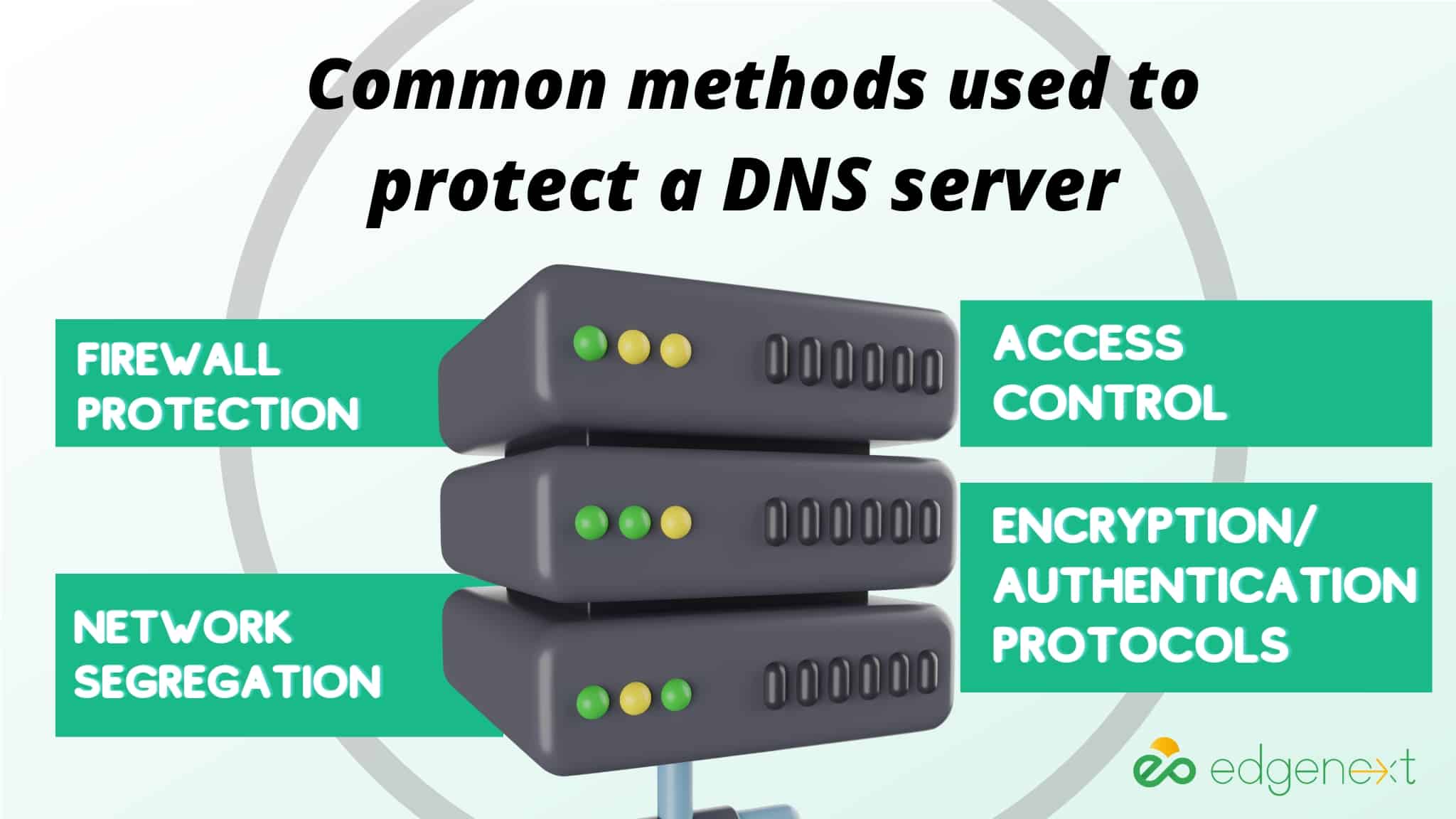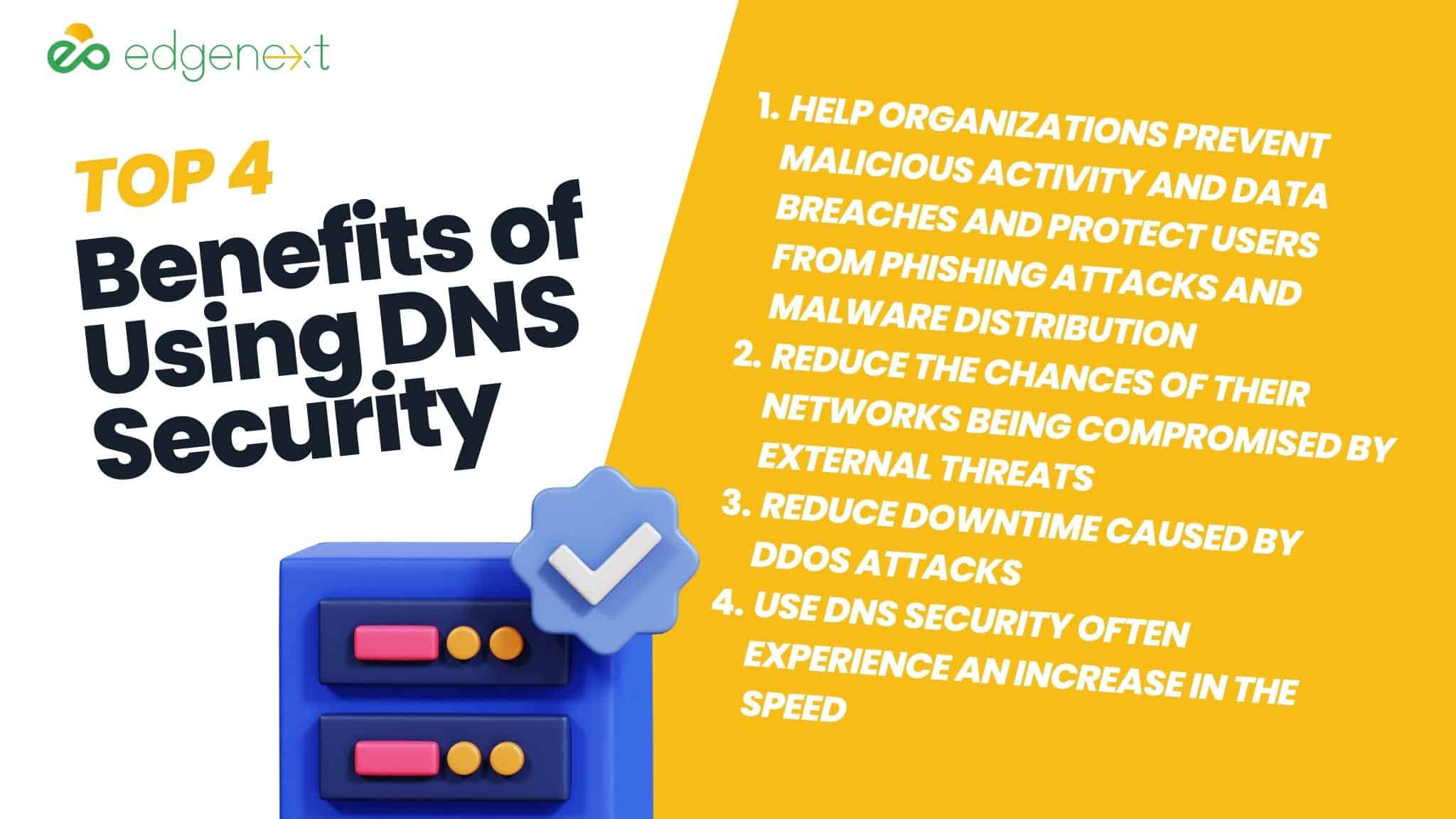
DNS security is an essential component of a secure network infrastructure. It enables organizations to protect their networks and data from malicious attacks, such as malware or distributed denial-of-service (DDoS) attacks, by providing safeguards against external threats. Without adequate protection, businesses are exposed to risks that could result in severe damage or disruption of services. Additionally, DNS security can help organizations comply with relevant regulations and standards, ensuring the safety and privacy of data stored within a business environment. In this blog post, we will discuss the importance of DNS security, the risks associated with not using it, and how to implement it into your existing infrastructure.

Common methods to protect a DNS server include firewall protection, network segregation and access controls, and encryption/authentication protocols. Firewall protection is an essential part of any security strategy, as it helps to create a barrier between the internal network and potential threats from outside sources. Network segregation ensures that only authorized users can access the DNS server, while access control restricts which data can be accessed by whom. Additionally, encryption and authentication protocols help protect the data stored within the DNS server against unauthorized access, ensuring that confidential information remains safe.
In addition to these measures, organizations should also consider deploying additional layers of security such as Intrusion Detection Systems (IDS), Intrusion Prevention Systems (IPS), and antivirus software to protect their DNS server from any potential attacks. An IDS monitors network traffic and identifies suspicious activities, while an IPS can block malicious traffic before it reaches the server. Antivirus software is also essential for detecting and removing malware from a system, helping minimize the attack risk.
DNS security can help organizations prevent malicious activity and data breaches while protecting users from phishing attacks and malware distribution. By implementing safeguards such as firewalls and access control, they can reduce the chances of their networks being compromised by external threats. Additionally, deploying additional layers of security, such as Intrusion Detection Systems (IDS) and antivirus software, further limits the risk of attack.
Furthermore, DNS security can also reduce downtime caused by DDoS attacks, which are becoming increasingly common in today’s interconnected world. With proper protection, these kinds of attacks can be significantly reduced or even prevented altogether. Finally, businesses that use DNS security often experience an increase in the speed at which requests are resolved, thereby increasing their overall productivity.

In conclusion, DNS security is essential to any organization’s IT infrastructure and should not be overlooked. Taking proactive steps to ensure your DNS server is secure will help minimize the risks associated with malicious attacks. By implementing the necessary safeguards and protocols, businesses can create a barrier between their internal network and external threats, thus protecting their networks and data from unauthorized access. By staying up-to-date with the latest technologies and procedures, organizations can ensure that their systems remain safe from malicious activity while improving response times for requests. Protecting your business through proper DNS security measures is critical to maintaining optimal performance in today’s digital world.
Contact EdgeNext’s Cloud Security Expert today to learn more about implementing DNS security for your organization. Protect your network from threats and keep your data safe!
© 2025 EdgeNext Copyright All Right Reserved